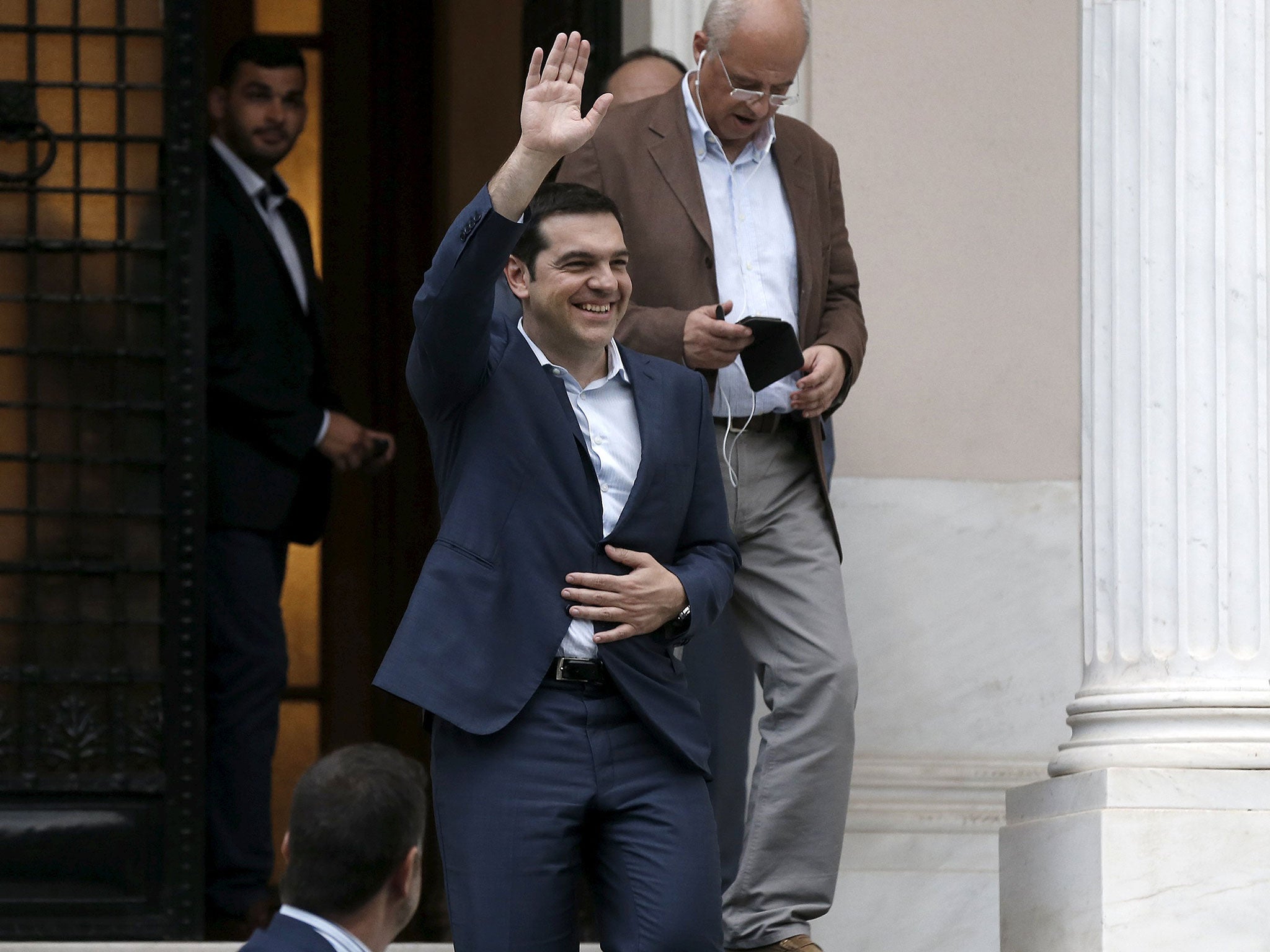Greece crisis: PM Alexis Tsipras makes proposals to EU leaders ahead of crunch debt summit
New 'permanent solution' could tax the wealthy, big companies and cut defence

Your support helps us to tell the story
From reproductive rights to climate change to Big Tech, The Independent is on the ground when the story is developing. Whether it's investigating the financials of Elon Musk's pro-Trump PAC or producing our latest documentary, 'The A Word', which shines a light on the American women fighting for reproductive rights, we know how important it is to parse out the facts from the messaging.
At such a critical moment in US history, we need reporters on the ground. Your donation allows us to keep sending journalists to speak to both sides of the story.
The Independent is trusted by Americans across the entire political spectrum. And unlike many other quality news outlets, we choose not to lock Americans out of our reporting and analysis with paywalls. We believe quality journalism should be available to everyone, paid for by those who can afford it.
Your support makes all the difference.Greek Prime Minister Alexis Tsipras has presented European Union leaders with a new set of proposals ahead of Monday's emergency Eurozone summit in a bid to avert a Greek default and possible exit from the euro.
Details of the proposals were not made public, but local media reports suggested they would target the wealthy, and include emergency tax hikes for companies grossing over €1million (£720,000) annually and additional defence cuts.
A government source said it was hoped the proposals would “provide a definitive solution” that would end fears of a disorderly bankruptcy in the face of a €1.6bn IMF loan payment due on 30 June.
In an interview with Ethnos, state minister Nikos Pappas was hopeful Athens would strike a deal which could not include the IMF, which has demanded austerity cuts in its dealings with Greece.
“We’re hoping to have a deal which wouldn’t include it,” he said. “We’re not just asking for an agreement, we’re seeking a solution. To reach an agreement, it should be beneficial for the people as well,” Mr Pappas said.
A government official said an extension of the current bailout is among the options on the table though insisted that Athens wouldn’t sign a deal which doesn’t include a debt reduction.
This weekend saw a hive of activity ahead of the summit, with Mr Tsipras sitting down with his negotiating team after returning from a visit to Russia on Saturday. On Sunday Cabinet ministers spent over five hours locked behind the doors of the PM’s office discussing the deal to be presented in Brussels. Earlier on Sunday Mr Tsipras held telephone conversations with German chancellor Angela Merkel, French President Francois Hollande and European Commission President Jean-Claude Juncker.
Mr Hollande then said everything must be done to keep Greece in the eurozone.
“If the Greeks leave the eurozone it won’t be positive for the Greeks or Europeans,” Mr Hollande told to reporters in Milan on Sunday after meeting with Italian Premier Matteo Renzi. He said that “for this reason we must reach an accord” between Greece and its creditors.
Greek leaders are voicing optimism about the next stage in the talks. Coming out of the cabinet meeting Finance Minister Yanis Varoufakis told reporters: “We’re going [to Brussels] for a solution.”
Mr Varoufakis had taken a strident line over the weekend, writing in a German newspaper that Ms Merkel could either “enter into an honourable agreement” or “follow the calls from (those in) her government who want her to throw overboard the only Greek government which has been faithful to its principles and which is able to take the Greek people on the road to reform.”
The pressure on the government is at all-time high as Mr Tsipras scrambles to find proposals that will please his creditors and keep the country in the EU while retaining his anti-austerity mandate.
As European leaders meet this evening, Greeks are set to stage a pro-Europe demonstration outside Parliament. More than €3 billion has left Greek banks in the past week alone as fears grow of the potential fallout from a default. Meanwhile, left-leaning activists are also calling for a separate demonstration on Tuesday to oppose new measures that may be introduced in exchange for a deal with Europe. “No to the new poverty measures,” a statement read.
Join our commenting forum
Join thought-provoking conversations, follow other Independent readers and see their replies
Comments